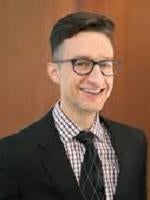Earlier this month the U.S. Supreme Court granted certiorari in Universal Health Services v. United States ex rel Escobar, a closely-watched case that addresses the theory of “implied certification” under the False Claims Act. The False Claims Act makes it a crime to submit a false or fraudulent claim to the government for reimbursement. Typically, a false claim arises when a government contractor submits a reimbursement claim for a product or service that was not actually provided. Additionally, a claim can be considered “legally false”—even when the product or service was provided—if the contractor did not comply with a condition of payment imposed by statute or regulation when providing the product or service.
At issue in Universal Health Services is whether implied certification is a valid theory under the False Claims Act. According to the theory, when a provider submits a claim for reimbursement, it implicitly certifies it has complied with all regulations governing the provision of that product or service—even if no express certification is made in the claim. Furthermore, the theory holds that a claim can be still considered legally false if the provider did not adhere to all the requirements governing the provision of the product or service, even if those regulations are not an express condition of payment. As a result of this theory, False Claims Act liability can arise from minor technical compliance violations.
In Universal Health Services, 780 F.3d 504 (1st Cir. 2015), the First Circuit Court of Appeals upheld implied certification as a valid theory of liability under the False Claims Act. In that case, a husband and wife filed suit after their daughter received treatment at an affiliate of Universal Health Services and later died, allegedly due to an adverse reaction to the medication she was prescribed. The relators alleged that the nurse who treated their daughter was not properly supervised by a physician, as required by Massachusetts licensing laws, meaning that the claims submitted to Medicaid for the treatment provided to their daughter were false under the theory of implied certification. Although the district court dismissed the complaint, the First Circuit reversed and allowed the suit to proceed.
In agreeing to hear Universal Health Services, the Supreme Court will review the following questions presented in the case: First, whether the theory of implied certification is viable under the False Claims Act. Second, if it is a viable theory, whether a claim can be considered legally false if the regulation does not make compliance an express condition of payment. The Supreme Court’s decision will resolve a circuit split between the courts of appeals. Notably, the First and Fourth Circuits have generally adopted the theory of implied certification, while the Second, Sixth, and Seventh Circuits have taken issue with some at least aspect of the theory.



 />i
/>i

